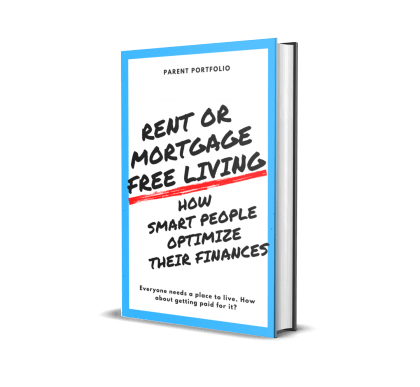Tenant Insurance and Homeowner Insurance: Misconceptions That Could Cost You Big Money

“I have tenant insurance, so I’m covered.”
The flip side of not having enough property insurance is that you get overconfident with the tenant insurance coverage that you do have. You can also easily get confused about what’s covered and what the home insurance (as a landlord or tenant) does not cover.
Insurance isn’t an easy topic to figure out, and college doesn’t prepare us for this. We usually have to figure out complicated problems like this on our own. It’s especially not easy to navigate insurance and topics like this where salespeople just want to make a few bucks off you.
Let’s go over common misconceptions about property insurance as a landlord, tenant, and homeowner that you should know about.
Is Property Insurance Confusing?
Property insurance can be one of the more confusing topics as you go through adulthood. You always figured that rent or a mortgage would be your only worry. Now you have this additional expense of property insurance that you have to stress about. Most people will either avoid the topic altogether or look for the cheapest policy possible.
We’re going to look at property insurance from both the homeownership equation’s perspectives (homeowners/landlords vs. tenants insurance).
This article on here shared a scary reality of not enough insurance coverage with this line:
“My insurance was able to cover the majority of the expenses. However, they did not renew my contract when it expired.”
This message opened my eyes because I also assumed that my property insurance covered everything without any repercussions based on my experiences. It’s important to know what you’re getting into when you sign up for a property insurance policy.
What Are Some Common Misconceptions About Property Insurance?
“I don’t need it because I’m just renting.”
You won’t technically always LEGALLY need renters insurance. However, it’s important to note that most landlords will require it. Thus, making renters insurance a necessity.
As a renter, you also want to protect your personal belongings, your liability and have a place to stay if anything were to happen. You don’t want to scramble for a place if your unit was to receive water damage, adding to your temporary living expenses.
“Everything is covered under my policy.”
You can’t assume that everything is covered because renters insurance may have basic coverage for your items. You also may not be protected from certain potential natural disasters depending on where you live. What if a dog bites someone? Who’s going to pay for those medical expenses or legal fees?
You usually need additional coverage for your expensive items (jewelry, art, and so on). It’s on you to inform your insurance company of these items too. You can’t assume that they’re just automatically protected.
“My roommate has a property insurance policy.”
Most insurance companies require roommates to have separate policies. You can’t assume that the roommate’s policy will cover someone else’s property.
Some insurance policies will allow you to include a partner under your policy. However, you shouldn’t assume that the person is automatically covered. Contact the insurance company to add this person to the policy.
“Doesn’t my landlord have insurance?”
Your landlord may very well have apartment insurance for their units (i.e., apartment, condominium). However, it’s important to note that their insurance only covers the unit’s actual structure and not your personal belongings. You need to purchase renters insurance for yourself.
“Doesn’t my tenant have property insurance?”
If you’re renting your place out or a piece of your home, it’s crucial that you also get property insurance as a landlord/homeowner because you want to protect the unit’s actual structure. The tenant’s insurance policy will only protect their belongings and not your structure.
You can click here to read about the differences between homeowners coverage and renters coverage. It’s essential to know the difference between the different types of home insurance.
“Tenants insurance is too expensive.”
You can customize your renters insurance policy to fit your budget, lifestyle, additional living expenses. You can even find an affordable renters insurance policy for as little as $5. This price is undoubtedly an expense that everyone can afford.
“I can claim everything with my property insurance.”
This scenario is where things get tricky with property insurance. You don’t want to get yourself into any legal troubles by trying to claim everything.
You also may not want to claim everything with property insurance if you have a high deductible. For example, it may not be worth claiming a broken window if the replacement costs $600, but your deductible is $500. You must go over your deductible so that you’re comfortable with it.
How Do You Know if You Have the Right Amount of Property Insurance Coverage?
Now it’s time to see what home insurance and renters insurance cover. You don’t want to find yourself in a tight financial situation when you realize that you’re not as protected as you thought you were.
According to Dan Olson of Insurance Dodo:
“When buying homeowners insurance, make sure you pay attention to the coverage terms being offered. Many home insurance companies will not automatically provide a detailed quote. They just give a basic outline of coverage and pricing. This can be bad if you need to make a claim because there could be hidden limitations in the policy. When you’re shopping around for quotes, ask the agent for a detailed quote that includes all the coverage and limitations. Once that is provided, go over it with the agent and ask her to clarify any terms that don’t make sense in common language.”
Here’s what landlords need to look out for with a landlord’s insurance policy:
- Is the entire structure covered?
- Are you protected from possible flooding or other natural disasters that may occur?
- Did your tenant obtain tenant’s insurance?
- Is your deductible reasonable?
Here’s what homeowners have to look out for with property insurance:
- Have you insured your expensive items?
- Do you have enough personal property coverage for your belongings?
- Is the entire structure protected?
- Do you have enough personal liability coverage if something were to happen?
- Do you have everyone living in your home under your policy?
- Is your deductible reasonable?
- Do you own a second home or vacation rental?
Here’s what tenants should think about with property insurance:
- Are your personal belongings all covered?
- Does the renters policy have covered loss items?
- Do you have enough liability coverage?
- Do you have loss-of-use coverage?
- Is your deductible reasonable?
That’s what should be considered from all angles when it comes to home insurance.
How can you get property insurance?
You can’t be cheap when it comes to insuring your place and everything you worked so hard for. It took you so much time and effort to get to where you are right now. You must protect it now.
Here’s what I would do to find the best deal for property insurance right now as a homeowner or renter.
Look for possible discounts.
Do you currently have auto insurance or any type of insurance? Does your college have an alumni relations department? Does your employer offer any deals for employees?
You’re going to find at least one insurance company that you can obtain a discount with.
Search around for quotes.
You don’t have to enroll with the first property insurance company that you find. It’s okay to shop around for the right renters insurance cost. It’s your money, and you have to do what’s best for
your situation. The good news is that you can obtain a renters insurance quote from many companies and get an insurance quote online.
A few more tips for saving money on property insurance
Here are a few more final tips to help you save money on this expense:
- Increase your deductible: A higher deductible (what you pay out of pocket) for claims will reduce your monthly rate.
- Bundle your renters insurance policies: Can you bundle your auto and property insurance?
- Go over your renters insurance coverage limits: You can save money by lowering your coverage limits in areas that aren’t important to you.
Conclusion
Good luck with your search for property insurance. Reach out to different insurance companies to get an insurance quote today and ask all your renters insurance questions.
Try to remember that you should customize your policy to your lifestyle and budget. We all have different living situations, live in another zip code, and different budgeting strategies. Get your free quote today!






